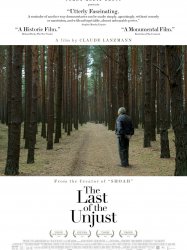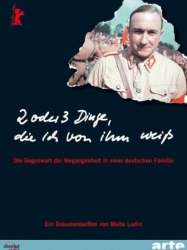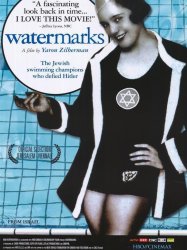Divine Food is a american film of genre Documentary
Divine Food (1998)

If you like this film, let us know!
- Infos
- Casting
- Technical infos
- Photos
- Videos
- Film quotes
- Characters
- Music
- Awards
Divine Food: 100 Years in the Kosher Delicatessen Trade is a 1998 American documentary film directed by Bill Chayes about how immigrant butcher Isaac Oscherwitz became the patriarch of a kosher food corporation that serves the dietary needs of Jewish people across the United States.
The film reveals the step-by-step, behind-the-scenes process of butchering kosher meat, and also looks into the lives of the Oscherwitz family through personal interviews, family stories, and archival home videos.
^ staff (2014). "Divine Food: 100 Years in the Kosher Delicatessen Trade". The Jewish Channel. Retrieved September 21, 2014.
^ Bowker staff (1993). Bowker's Complete Video Directory, Volume 3. Bowker. pp. 803–804.
^ Wall, C. Edward (2001). Media Review Digest, Volume 31. Pierian Press.
^ Chayes, Bill (July 29, 2008). "Divine Food: 100 Years in the Kosher Delicatessen Trade". Chayes Productions. Retrieved September 8, 2014.
Comments
Leave comment :
Suggestions of similar film to Divine Food
There are 8963 with the same cinematographic genres, 3314 films with the same themes (including 250 films with the same 3 themes than Divine Food), to have finally 70 suggestions of similar films.If you liked Divine Food, you will probably like those similar films :

Paper Clips (2004)
, 1h22Origin USA
Genres Documentary
Themes Films about education, Films about racism, Films about religion, Documentary films about racism, Documentary films about law, Documentary films about war, Documentary films about historical events, Documentary films about religion, Political films, Films about Jews and Judaism, Documentary films about World War II
Actors Tom Bosley
Rating72%





Paper Clips takes place in the rural, blue-collar Tennessee community of Whitwell, where a middle-school class attempts to gauge the magnitude of World War II's Holocaust by collecting paper clips, each of which represents a human life lost in the Nazis' slaughter of Jews. The idea came in 1998 from three of the teachers at the school and was completed in their eighth grade classrooms. The students ultimately succeeded in collecting over 25 million paperclips.

The Last of the Unjust (2013)
Directed by Claude Lanzmann
Origin France
Genres Documentary
Themes Films about racism, Films about religion, Documentary films about racism, Documentary films about law, Documentary films about war, Documentary films about historical events, Documentary films about religion, Political films, Films about Jews and Judaism, Documentary films about World War II
Actors Claude Lanzmann
Rating72%





Dans le cadre de ses travaux sur Shoah, Claude Lanzmann s'est longuement entretenu avec le rabbin Benjamin Murmelstein, au sujet de son rôle ambivalent comme haut fonctionnaire de la communauté juive de Vienne, contrôlée par Adolf Eichmann pendant la période nazie, et comme un « doyen juif » dans le camp de concentration de Terezín. En se filmant au présent sur les lieux évoqués dans les images de 1975, Lanzmann introduit une interrogation critique sur les moyens d'évoquer le passé au cinéma.

At the Green Line (2005)
, 52minutesOrigin Israel
Genres Documentary
Themes Films set in Africa, Films about religion, Documentary films about law, Documentary films about war, Documentary films about historical events, Documentaire sur une personnalité, Documentary films about politics, Documentary films about religion, Political films, Films about Jews and Judaism
 , 58minutes
, 58minutesOrigin USA
Genres Documentary
Themes Films about music and musicians, Films about religion, Documentary films about music and musicians, Documentaire sur une personnalité, Documentary films about religion, Films about classical music and musicians, Musical films, Films about Jews and Judaism
Actors Judd Hirsch
Rating6%






Paradise Camp (1986)
, 56minutesGenres Documentary
Themes Films about racism, Films about religion, Documentary films about racism, Documentary films about law, Documentary films about war, Documentary films about historical events, Documentaire sur une personnalité, Documentary films about religion, Political films, Films about Jews and Judaism, Documentary films about World War II

Israel, Why (1973)
, 3h5Directed by Claude Lanzmann
Origin France
Genres Documentary
Themes Films about religion, Documentary films about religion, Films about Jews and Judaism
Actors Claude Lanzmann
Rating76%





Pourquoi Israël (sans point d'interrogation) n'a pas de synopsis classique, ne raconte pas d'histoire, mais tente d’appréhender l'histoire d'Israël, vingt-cinq ans après la création de son État, au travers d'une succession d'images du pays et d'interviews de ses habitants. Tourné en 1972, le film, qui dure trois heures vingt, est présenté au 11e Film Festival de New York le 7 octobre 1973, soit le lendemain du déclenchement de la Guerre du Kippour.
 , 1h25
, 1h25Genres Drama, Documentary
Themes Films about families, Films about racism, Films about religion, Documentary films about racism, Documentary films about law, Documentary films about war, Documentary films about historical events, Documentaire sur une personnalité, Documentary films about religion, Political films, Films about Jews and Judaism, Documentary films about World War II
Rating72%





Malte's sister Barbel is shown defending her father and insisting that he could not have known the full truth about Auschwitz, that he tried to resist or subvert the Nazi's most inhumane policies, and that the victims of Auschwitz should be thought of as casualties of war. Malte also includes testimony from a member of a Jewish family in Slovakia whose house was expropriated by the Nazis in the early 1940s.

Voices of the Children (1998)
Genres Documentary
Themes Films about children, Films about racism, Films about religion, Documentary films about racism, Documentary films about law, Documentary films about war, Documentary films about historical events, Documentaire sur une personnalité, Documentary films about religion, Political films, Films about Jews and Judaism, Documentary films about World War II

They Were Not Silent (1997)
, 30minutesGenres Documentary
Themes Films about racism, Films about religion, Films about the labor movement, Documentary films about racism, Documentary films about law, Documentary films about war, Documentary films about historical events, Documentaire sur une personnalité, Documentary films about politics, Documentary films about religion, Political films, Films about Jews and Judaism, Documentary films about World War II

Watermarks (2004)
, 1h20Genres Documentary, Historical
Themes Films about racism, Films about religion, Sports films, Documentary films about sports, Documentary films about racism, Documentary films about law, Documentary films about historical events, Documentaire sur une personnalité, Documentary films about religion, Films about Jews and Judaism
Rating71%





L’Hakoah (« La force » en hébreu), fut fondé à Vienne en 1909, par réaction au célèbre paragraphe aryen qui interdisait aux clubs de sport autrichiens d’intégrer des athlètes juifs et devint l’un des plus grands clubs de sport de l’Europe de l’entre deux guerres. Dans les années 30, les plus grands succès de l’Hakoah furent remportés par ses nageuses, qui dominaient la compétition nationale en Autriche. Après l’Anschluss, les Nazis ont fait fermer le club. Les nageuses réussirent à fuir le pays avant que la guerre n’éclate, grâce à une opération de sauvetage organisée par les sportifs de l’Hakoah. 65 ans plus tard, 7 membres de l’équipe féminine de natation se retrouvent dans leur ancienne piscine à Vienne, un voyage qui évoque à la fois les souvenirs de leurs jeunes années, leur féminité affirmer et qui leur permet de renouer les liens de toute une vie.
 Connection
Connection